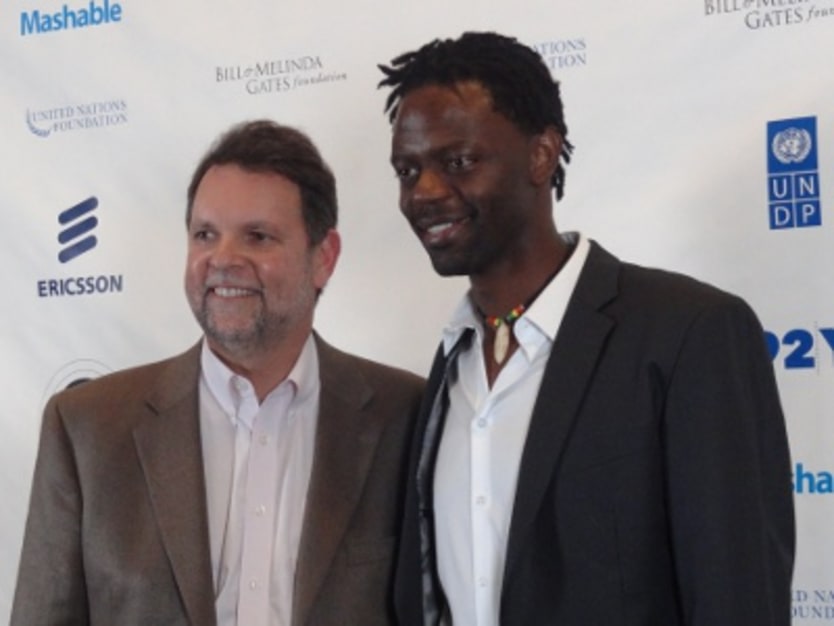
Engaging the United States’ frayed diaspora community to push their ties beyond culture, and sometimes politics, and into organized development cooperation in their home countries has been an ongoing challenge for the aid community.
The issue — and ideas on how to circumvent its obstacles — resurfaced this year in New York at the Mashable Social Good Summit, one of several forums flanked by world leaders, celebrities and civil society members who are descending on the city for the opening of the U.N. General Assembly.
With more than 40 million foreign-born people known to be living in the United States — home to more than 300 million — it only makes sense to tap into these communities to facilitate foreign policy and sustainable economic development, says Kris Balderston, the special representative for global partnerships at the Global Partnership Initiative of the Office of the Secretary of State.
“We have to make the diaspora community in this diverse country of ours the pillar of foreign policy,” Balderston told Devex, following a speech Saturday afternoon on digital technology in Africa.
Mutual interest isn’t the problem: His office is increasingly fielding more and more economic inquiries from curious foreign nationals and domestic U.S. companies alike who want to relocate abroad to set up businesses.
“Because the world is getting smaller, economically, there are real opportunities for more shared value between companies, investors, diasporans and small business people in the country from emerging countries.”
But as TMS “Teddy” Ruge, co-founder of the Washington, D.C.-based nonprofit and online portal Project Diaspora explained, the diaspora community still isn’t organized in a way that is “transformative.”
“That is coming,” he said, also noting that full mobilization hasn’t happened quite yet.
Ruge and Balderston both point to two U.S. State Department-sponsored initiatives, the International Diaspora Engagement Alliance and the African Diaspora Marketplace, which Balderston touted at the Second Annual Global Diaspora Forum in July 2012, as concrete platforms for action that can help connect the diaspora community with their home countries through economic projects.
The projects are different, but both function to provide funding vehicles to help foreign nationals in the United States kick off what are deemed transformative business projects in their countries of origin. The African Diaspora Marketplace, a project sponsored by Western Union, is now in its second year, and IdEA, which started in 2011, is expected to hit full stride in 2013.
“We need to get out to the people who are communicating this way to use this platform IdEA … and create their own ideas,” Balderston explained. “We don’t have all the wisdom in Washington to use this platform and come up with our own ideas, so this is why we are really trying to provide this platform so people can be creative and come up with their own solutions.”
For Ruge, connecting the diaspora with communities in their home countries through technology — mobile technology, in particular — is a viable way to mobilize the diaspora community in a cohesive manner and get sustainable projects off the ground, especially in Africa.
His organization, Project Diaspora, which hosted its second conference — Villages in Action — on Millennium Development Goals’ progress in Masindi, Uganda, in March 2012, is now focused on building two programs to support groups of displaced women and low-income farmers in Uganda, with the support of the diaspora community in the United States, in part through its online portal.
Project Diaspora itself, though it has also partnered with the State Department on the Global Diaspora Forums, is not directly involved with either the African Diaspora Marketplace or IdEA.
“[Mobile technology] is fostering an acceleration of an educated workforce, because now they have access to a lot more educated content and materials to learn from,” he said. “The best education right now on the continent happens outside the classroom.”
Stay tuned for more coverage from this year’s Social Good Summit, and check out our conversations with other global development luminaries attending the event.
Search for articles
Most Read
- 1
- 2
- 3
- 4
- 5








